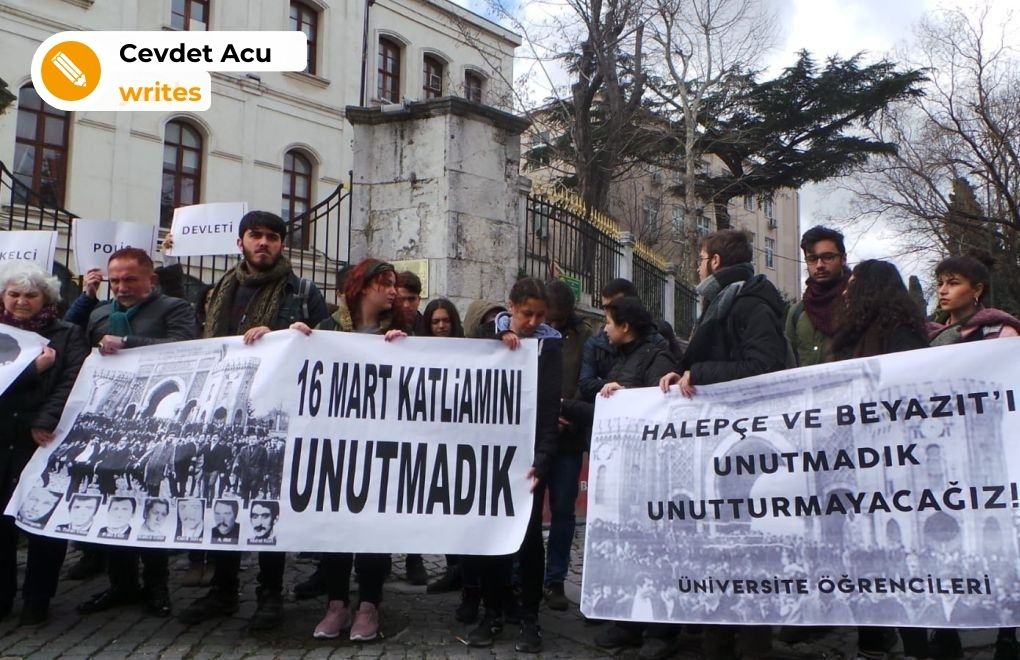* Photo: Anadolu Agency (AA) - Archive
"I just want to be somewhere where I am a person, not just a number, not just a label 'refugee'." - Behrouz Boochani
To avoid any confusion, it may be helpful to define the refugee concept before further discussing the main issue.
The 1951 Refugee Convention defines a refugee as "someone who is unable or unwilling to return to their country of origin owing to a well-founded fear of being persecuted for reasons of race, religion, nationality, membership of a particular social group, or political opinion."
This definition, some in recent years have argued, should be expanded to include people who are forced to leave their houses due to natural disaster and/or climate change as refugees.
Climate refugees will be one of the main issues in the future as we (people) are destroying our ecosystems day by day. To illustrate, Kiribati, a country in the central Pacific Ocean, is home to 117,606 people as of 2019, and it is one of the countries most likely to disappear due to climate change.
"Researchers believe that at some point this century these islands may become uninhabitable while some people claim that Kiribati may disappear in 30 years as ocean levels rise due to climate change. Hence, we need to redefine the concept of the refugee.
According to the United Nations High Commissioner for Refugees (UNHCR), there are 79.5 million forcibly displaced people across the world, as of July 2020. In other words, the current number of displaced people is higher than the entire UK population.Out of the 79.5 million displaced, there are 26 million refugees who have been forced to leave their home countries for different reasons, such as persecution, conflict, or natural disaster.
They have not left their home countries out of choice; they often have had to leave behind their homes, possessions, and loved ones.
Since 2014, Turkey has hosted the highest number of displaced people in the world due to Syrian refugee crisis which started in 2011.
Based on data provided by Turkey's Directorate General of Migration, Turkey hosted 3,529,239 Syrian refugees with temporary protected status as of July 2020, with 44.6 percent (1.6 million) of these refugees being children. UNHCR data also shows that 40 per cent of displaced people around the world are children as of July 2020.
In the remainder of this article, I do not wish to discuss statistics further, or analyse the political decisions around Turkey's "refugee policy" since the start of the Syrian crisis.
On the contrary, I wish to highlight that refugees are not numbers. Each of them is an individual with a name, memories, hopes, like all of us. As a result, I wish to discuss the image of refugees, and how they have been treated by policy makers and mass media, based on two cases.
1.jpg)
* Akçakale, Urfa in 2018 (by Cevdet Acu)
Idlib attack and opening of borders by Turkey
One unexpected decision was declared by the government of Turkey at the end of February 2020. Just hours after brutal Bashar al-Assad regime airstrike killed Turkey's 34 soldiers in Syria's Idlib province, officials of Turkey announced that they were abandoning agreements with the European Union (EU), referring the EU-Turkey deal of 2016.
"We will no longer keep the doors closed for refugees who want to go to Europe," the official stated. Turkey's President and ruling AKP Char Recep Tayyip Erdoğan confirmed this discourse as he said: "What did we do yesterday? We opened the doors."
These words raised the concerns of European countries. They feared that they may face a new "refugee crisis", five years after the "2015 crisis" which saw many thousands of refugees making their way across Europe.
The refugees in Turkey who heard that the government of Turkey was going to open its borders with Greece and Bulgaria, saw this an opportunity to move to Europe, in many cases their original destination.
Following the government's decision, thousands of refugees commenced another dangerous journey. What refugees found when they arrived at the birder were heavily armed Greek border guards, tear gas, rubber bullets and razor wire. The media released shameful images of the Greek Coast Guard, nominally a lifesaving institution, firing in the direction of refugees onboard boats trying to reach Greek shores in early March 2020.
These "guards" also beat refugees' boat with sticks and sought to repel them. However, the head of the European Commission had already sent a message of support to the Greece in its attempts to stop refugees crossing its (and the EU's) border with Turkey.
The government of Greece immediately declared the suspension of new asylum applications for one month at that time.
Dispute about numbers masking real challenges
As a result, refugees were caught between a rock and a hard place. On one side of the border, they were tear gassed by the riot police of Greece; on the other, the Turkey's military had locked the gates behind them.
This treatment of refugees is reminiscent of Giorgio Agamben's homo sacer concept. As Slavoj Žižek explains:
"Today's homo sacer is the privileged object of the humanitarian biopolitics — it is the one who is deprived of their full humanity through the very patronizing way of being taken care of." Hence, refugees are not subjects; they are case as the objects of the countries' actions.
While all this maltreatment was occurring, many continued to see refugees only as numbers, nothing more. For instance, on March 1, 2020, the Interior Minister of Turkey tweeted, "The number of refugees who have left our country via Edirne has reached 100,577 as of 7:40 pm".
This was the first in a series of daily tweets, in which the minister let his followers know how many refugees, reduced to numbers, had left Turkey. His counter hit 130,469 on March 3, and 135,844 the following day. The minister was able to provide seemingly precise data on a daily basis. Finally, the minister's last tweet on the issue put the figure at 142,175 on March.
The United Nations Migration Agency (IOM) and the government of Greece also shared the numbers of refugees making the crossing, sometimes providing different numbers. While on one occasion, the government of Turkey claimed that 76,358 refugees had left Turkey for Greece's border, the Greek government claimed that only 2,000 people were at its border gate.
This dispute about numbers masked the real challenges faced by each refugee, and prevented the debate about how these challenges could be overcome. The only discussion among these institutions was over the numbers at the Greek border gate.
.jpg)
* Akçakale, Urfa in 2018 (by Cevdet Acu)
A boat with refugees on board sank in Lake Van
The other case occurred on June 27, 2020. A boat which sank on Lake Van in eastern Turkey is believed to have been carrying up to 60 refugees from Pakistan, Afghanistan and Iran. Different numbers were reported in the mass media in Turkey, and it is still not clear how many people were on the boat. Search and rescue operations were still not completed as of July 8.
Since this tragic incident occurred, almost every day the media has updated the number of deaths. The first day, Turkey's media reported six deaths, with no information concerning the missing. On the second day, the number was increased to seven, then eight on the third day.
At the time of writing, the number of deaths reported is twelve. With the rescue operations still ongoing, it seems more than likely the media will update the numbers of those who passed away.
Who were these refugees? What were their names?
However, these media reports2.jpg) leave us with no idea who the refugees were, and or even what their names were. They will be remembered only as the numbers of refugees who passed away in Lake Van.
leave us with no idea who the refugees were, and or even what their names were. They will be remembered only as the numbers of refugees who passed away in Lake Van.
Whenever I see the news updates about this incident, I ask myself the question, of whether it was only the boat which sank in Lake Van, or if our conscience went down with it; society seems to be getting used to living with this type of incident, as it happens so often.
However, we should not normalise this type of tragedy. Each one of us has a moral responsibility to do what we can to make life better for all people. We must pressure our governments to ensure the humane treatment of people who are forced to leave their home countries.
Time to ask 'What kind of a future do we want?'
Altogether, it may be said that in 2015, European countries missed the opportunity to implement a refugee policy based on respect for human rights. When the number of displaced people arriving in Europe significantly increased in 2015, they started to provide support to the countries which host high numbers of refugees, such as Turkey, Jordan, and Lebanon.
In early 2016, a deal was struck in which the EU requested these hosting countries to keep refugees in their territory, in return for financial assistance. As a result of this dirty deal, a win-win for the EU-Turkey but a loss for refugees themselves, Turkey has tightened its borders to prevent any refugee attempting to move to Europe "illegally".
However, following the government of Turkey's abovementioned decision at the end of February 2020, it is an opportune moment to reconsider the EU's old refugee policy. At present, due to the Covid-19 pandemic, most states have closed their borders. Doctors and politicians advise us to stay home in quarantine or self-isolation.
How is this possible for those who already have been forced to leave their homes, and those who do not have a home? I believe it is time to ask what kind of future we want. Do we want to live a world where people forced to leave their home countries are seen only as numbers?
If this continues, we will continue to see preventable deaths of people only looking for a better life and to survive. The EU must now provide one of the most basic of human rights, asylum, for refugees. It is time for a system which provide basic needs, including food and shelter, for all humans without any kind of discrimination.
'I just want to be somewhere where I am a person'
Finally, I want to mention Behrouz Boochani, a Kurdish journalist and author, who was held in the Australian-run Manus Island detention centre in Papua New Guinea from 2013 until its closure in 2017.
He wrote a very influential book called "No Friend But the Mountains: Writing from Manus Prison (2018)" based on his perilous journey.
The book starts with writer Richard Flanagan's foreword to the work, and he describes this book: "No Friend But the Mountains is a book that can rightly take its place on the shelf of world prison literature, alongside such diverse works as Oscar Wilde's De Profundis, Antonio Gramsci's Prison Notebooks, Ray Parkin's Into the Smother, Wole Soyinka's The Man Died, and Martin Luther King Jr's Letter from Birmingham".
In his great book, Boochani explains how people held in the detention centre in Papua New Guinea are treated as only numbers, not as a human. In one of his interviews, Boochani said: "I just want to be somewhere where I am a person, not just a number, not just a label 'refugee'."
I want to highlight that refugees are no less valuable than others. They are not numbers or statistics. They are people; they have names and memories. We should always remember that we are all humans under the same sky even though some people still in the 21th century surprisingly think they are superior than others.
A movie recommendation: I highly recommend you to watch a movie called "Capernaum (2018)". The movie director is Nadine Labaki. The movie is about the story of Zain (Zain al-Rafeea), a Lebanese boy who sues his parents for the "crime" of giving him life. The movie gives some details about the life of refugees as well.
Note: I would like to express my gratitude to my friend, Gabriel, for his time to edit and his suggestions.
About Cevdet AcuCevdet Acu is a PhD candidate in Economics at University of Exeter. His focus is on the macroeconomic influence of displaced people on receiving countries. His research is concerned with the question of how Syrian refugees impact the labour market in host countries, particularly in Jordan and Lebanon. |
(CA/SD)




.jpg)
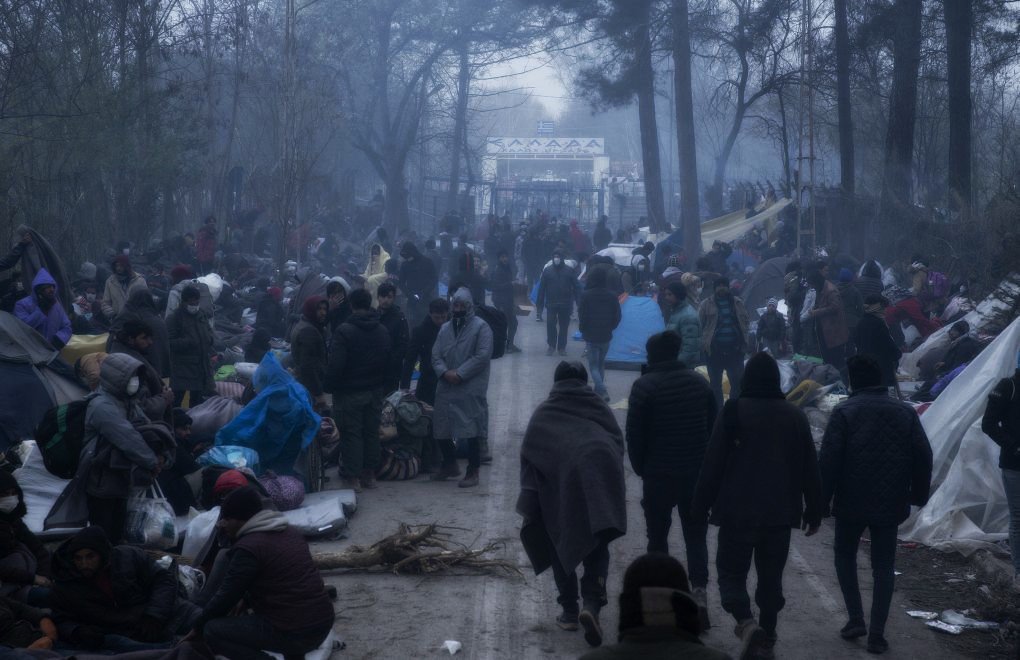
kjhbkhb.jpg)
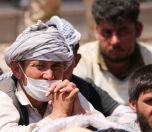
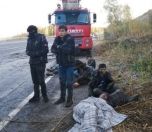
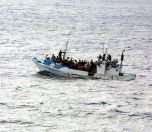
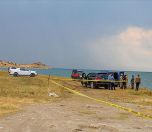
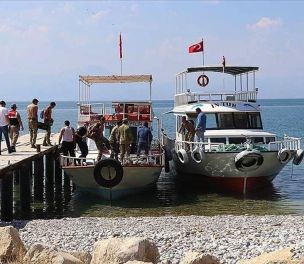
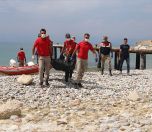
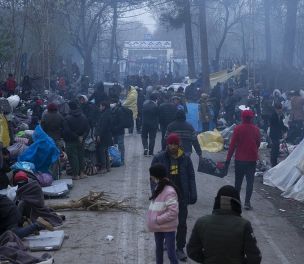
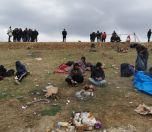
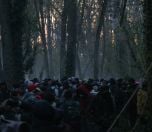
.jpg)
.jpg)

